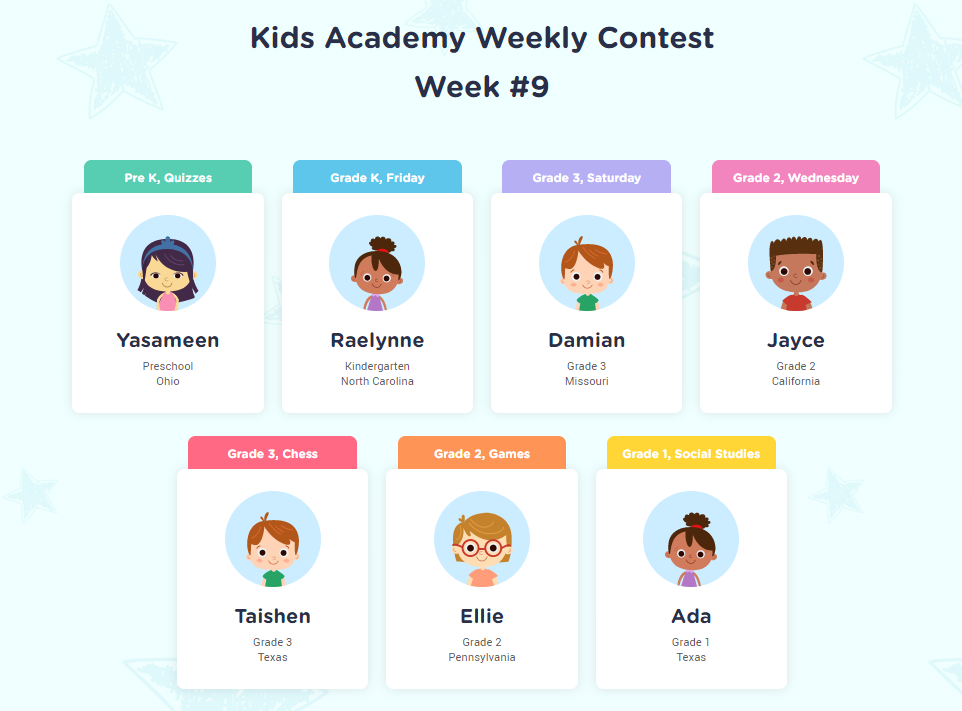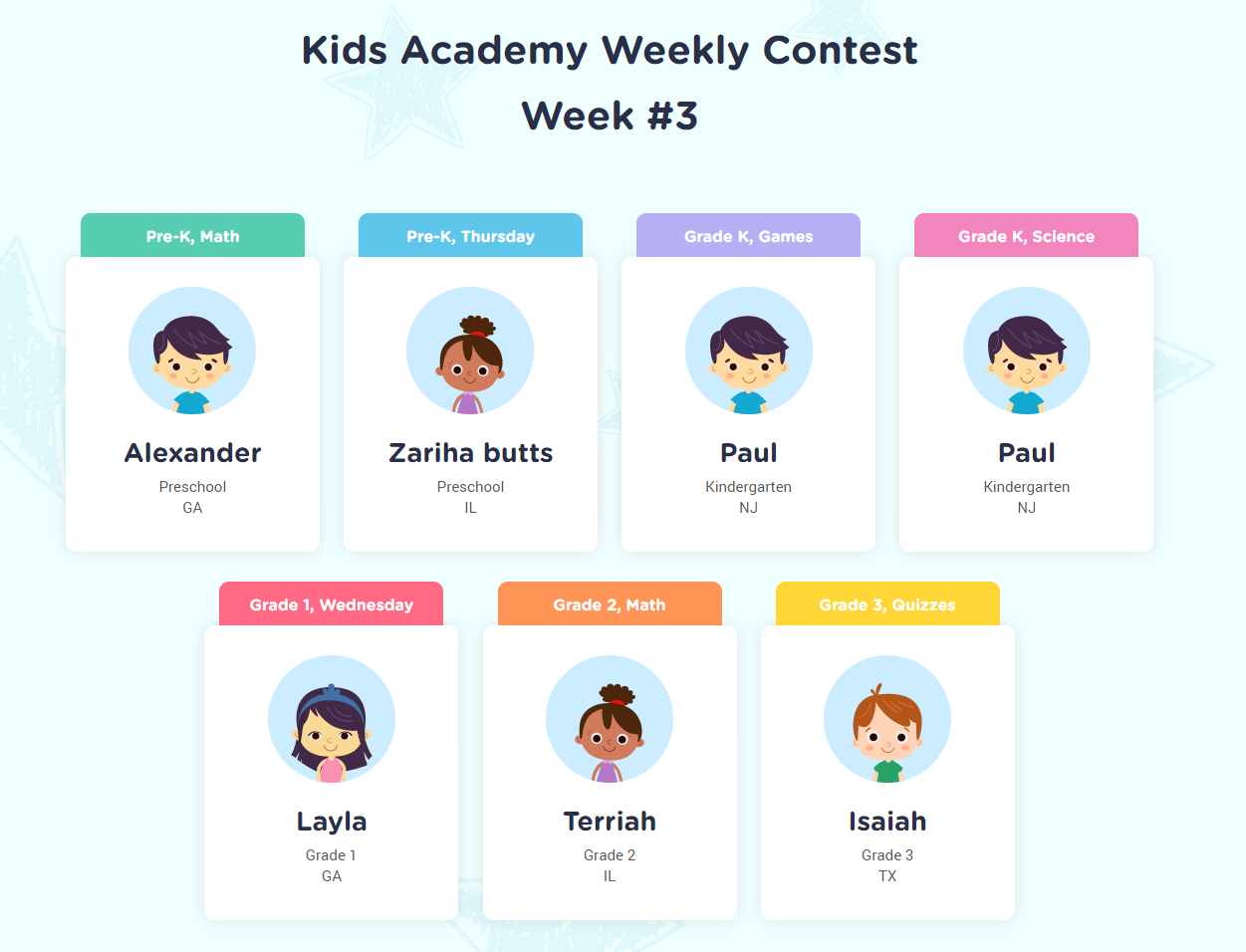Understanding ecosystems Worksheets for Ages 4-8
11 filtered results
-
From - To
Explore the fascinating world of ecosystems with our "Understanding Ecosystems Worksheets" designed specifically for ages 4-8. These engaging worksheets offer young learners a fun and interactive way to discover the interconnections between plants, animals, and their environments. Each activity is tailored to spark curiosity and critical thinking, featuring vibrant illustrations, simple activities, and foundational concepts that make learning about nature exciting. Perfect for classroom use or at-home learning, our worksheets promote essential ecological literacy while honing fine motor skills. Ignite your child’s passion for the environment and help them grasp the importance of ecosystems with these delightful resources!
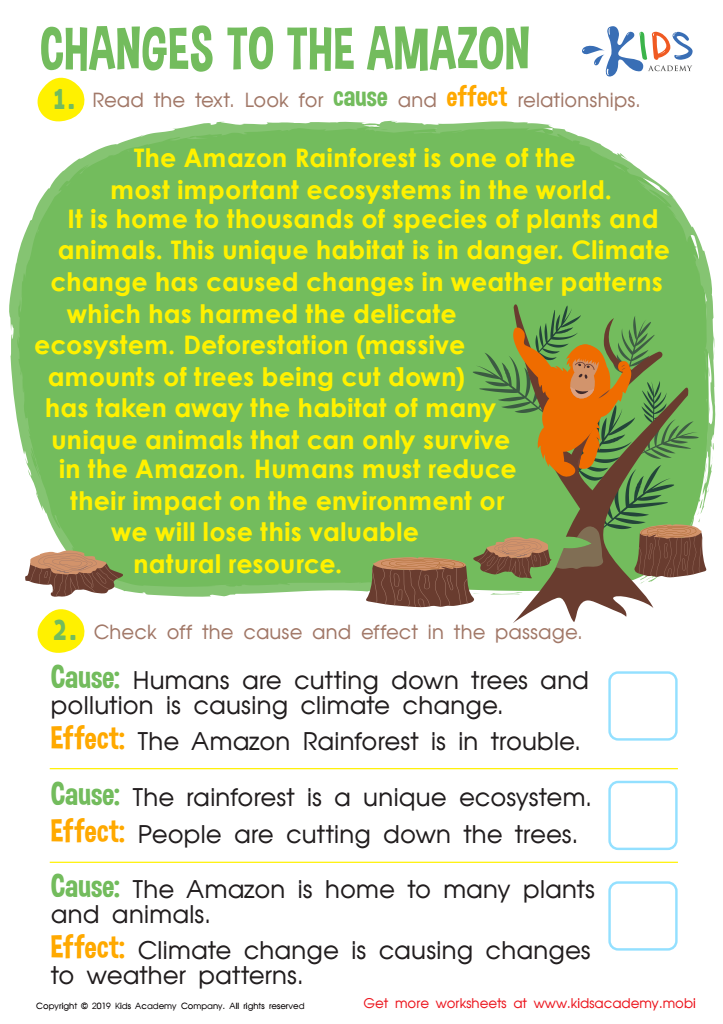

Changes to the Amazon Worksheet
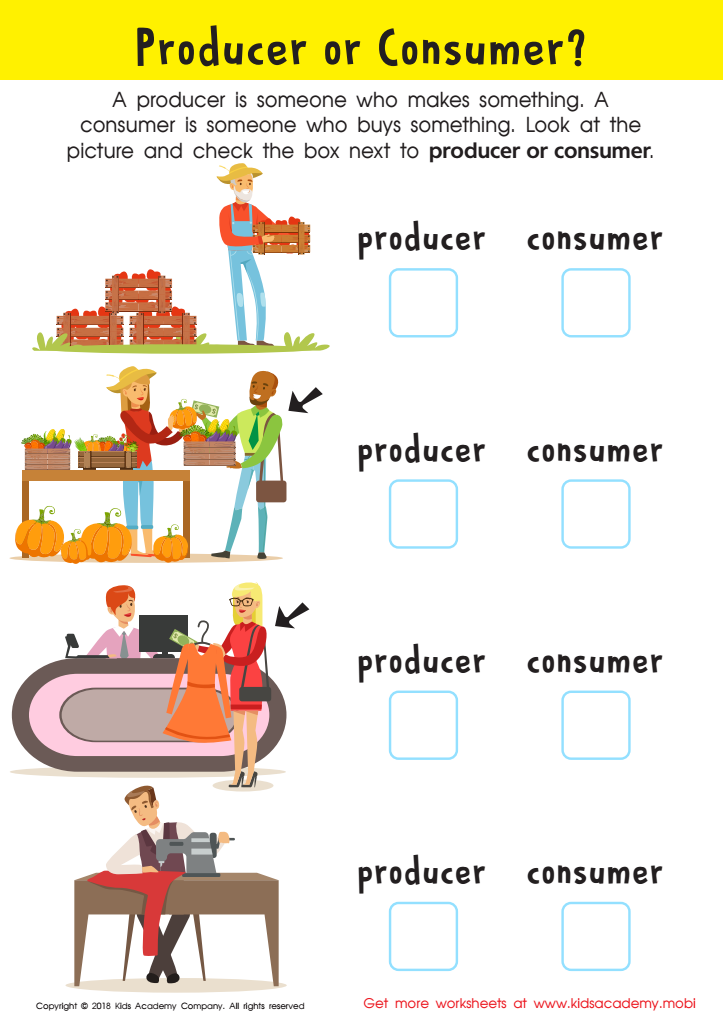

Producer or Consumer? Worksheet


Ecosystems: Assessment 1 Worksheet
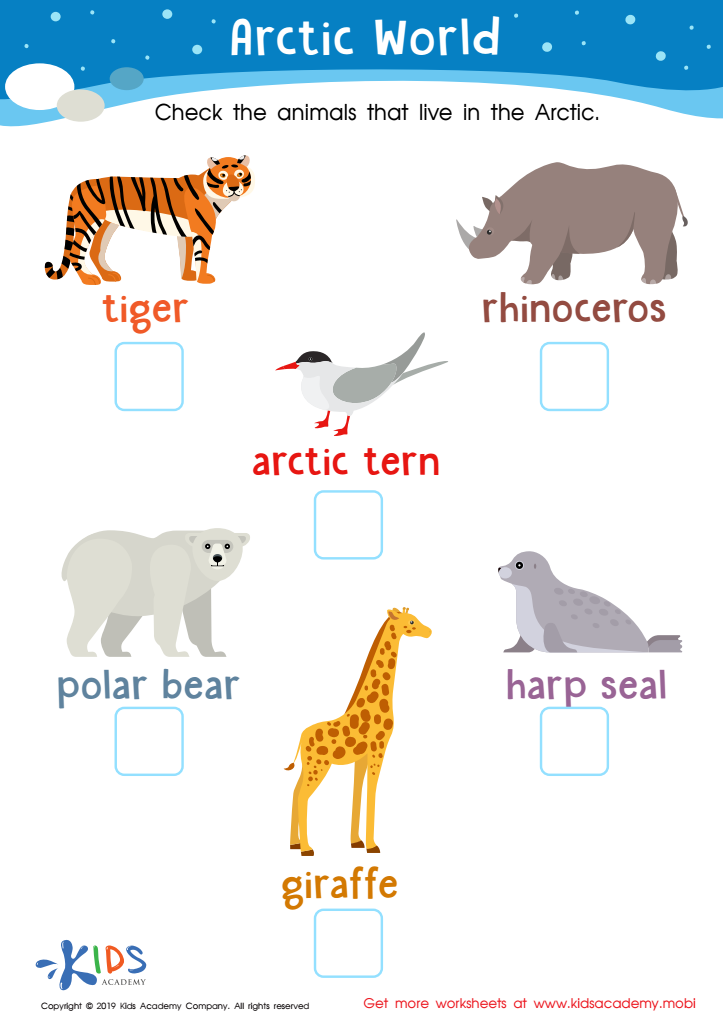

Arctic World Worksheet
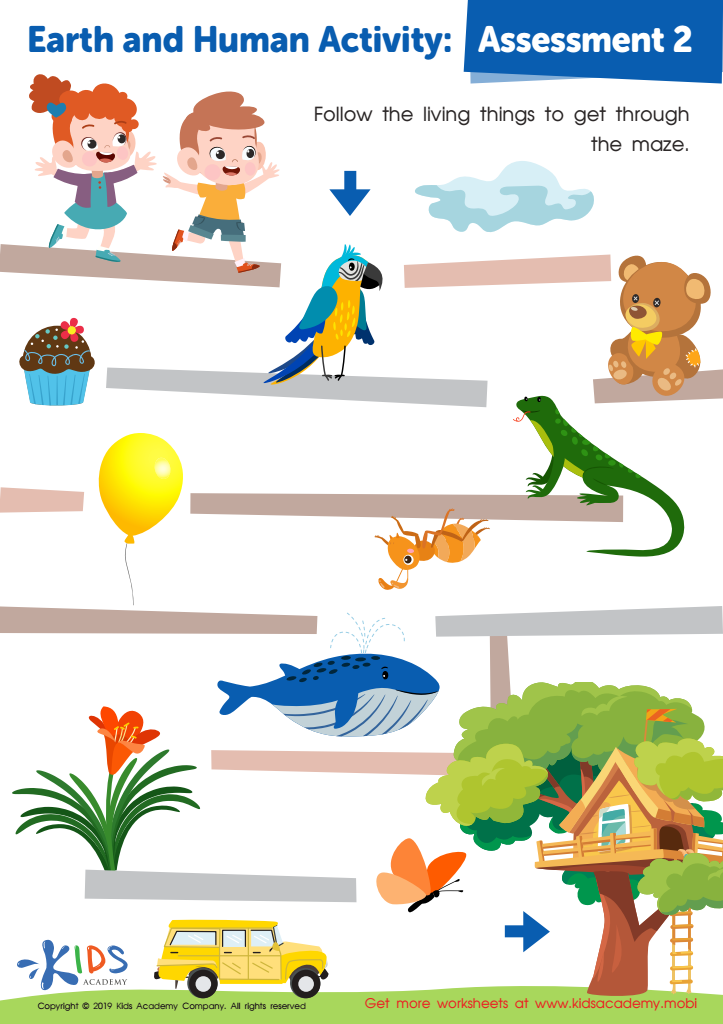

Earth and Human Activity: Assessment 2 Worksheet
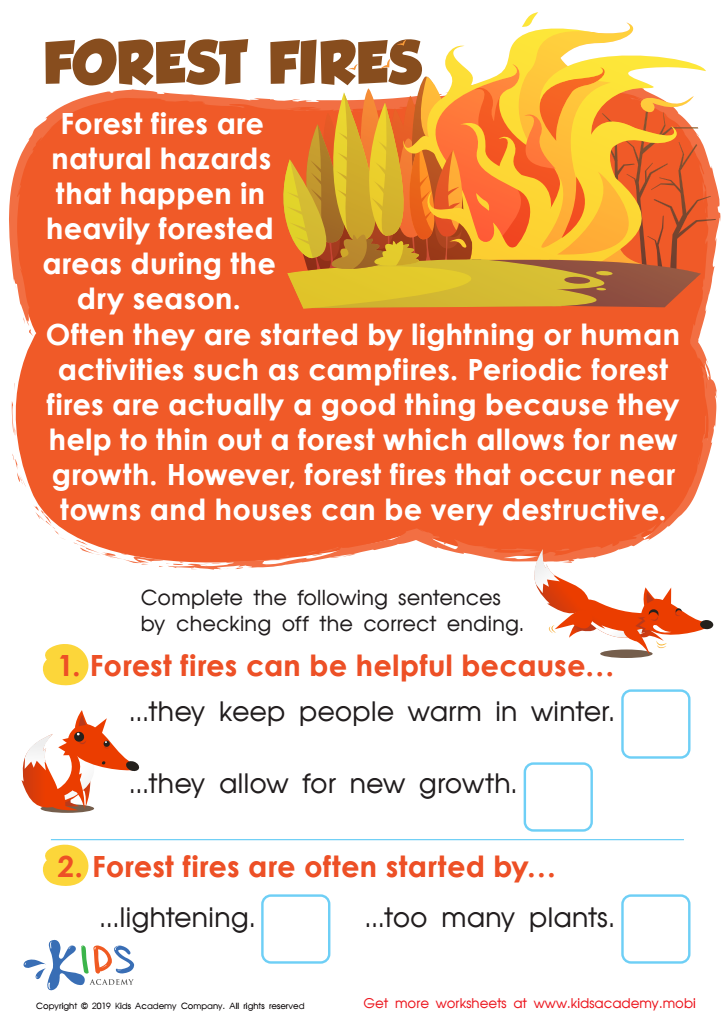

Forest Fires Worksheet
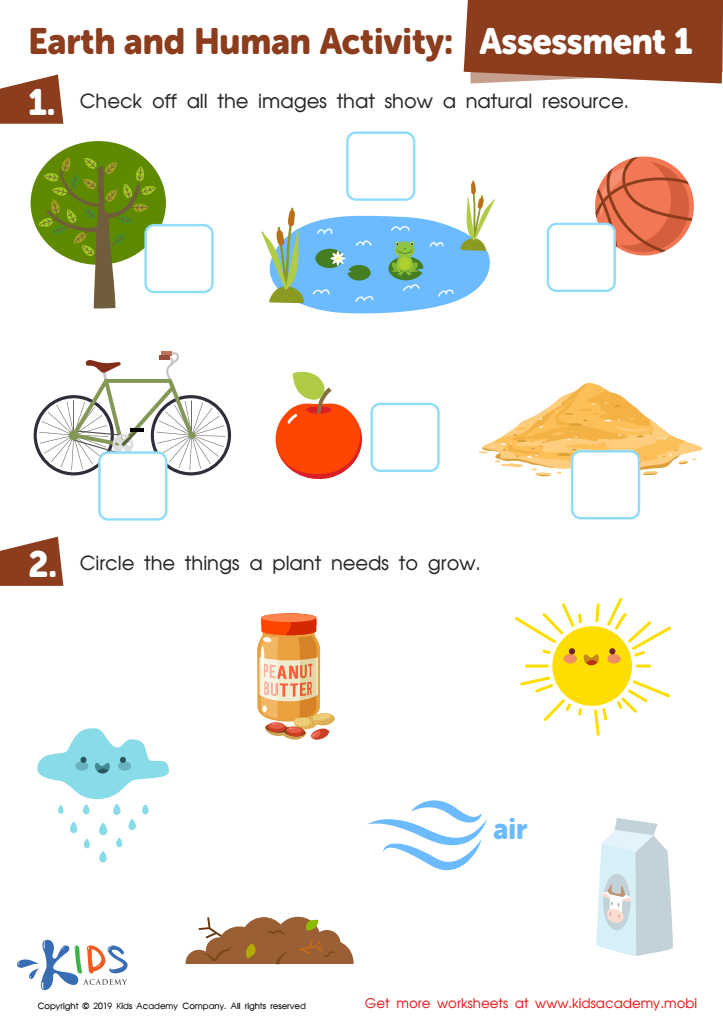

Earth and Human Activity: Assessment 1 Worksheet


Ecosystems: Assessment 2 Worksheet
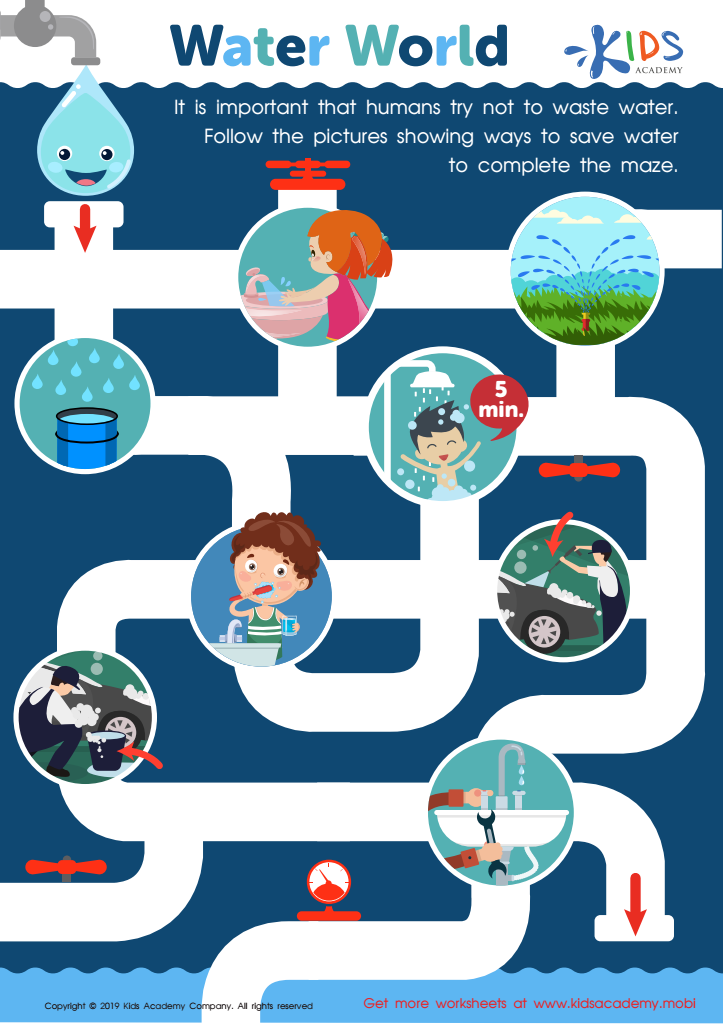

Water World Worksheet


Animals and Plants: Assessment 1 Worksheet
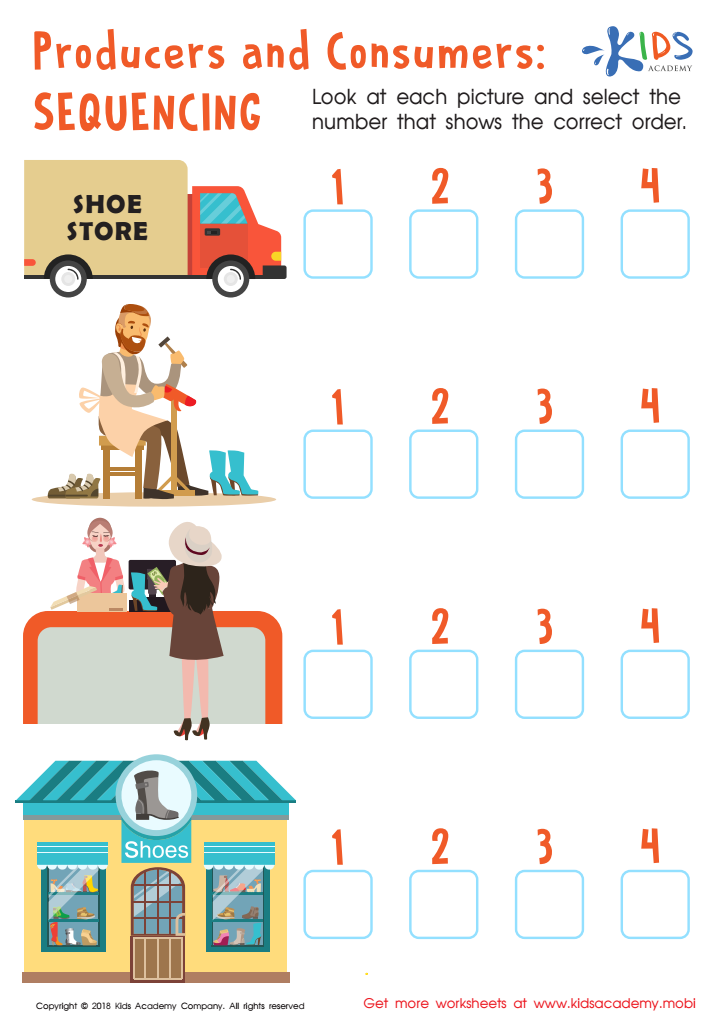

Producers and Consumers: Sequencing Worksheet
Understanding ecosystems is crucial for children aged 4-8, and both parents and teachers play a significant role in fostering this knowledge. At this age, children are naturally curious about the world around them. Learning about ecosystems helps them make connections between living things and their environments, showing how plants, animals, and humans impact one another.
By introducing ecosystems early, we nurture environmental awareness and responsibility. Children who understand the delicate balance of nature are more likely to grow into conscientious adults who care about conservation and sustainability. Lessons about local ecosystems, like forests, ponds, or gardens, can inspire a sense of wonder and appreciation for nature.
Moreover, learning about ecosystems supports various developmental skills. It enhances critical thinking as children explore topics like food chains, habitats, and biodiversity. This knowledge can also engage creativity, encouraging children to imagine solutions to ecological challenges.
For parents and teachers, supporting this understanding builds a foundation for future scientific learning and encourages healthy lifestyles and outdoor exploration. Ultimately, caring about ecosystems isn't just about fostering knowledge; it encourages a lifelong respect for nature and an understanding of our responsibility to protect the planet for generations to come.
 Assign to My Students
Assign to My Students







